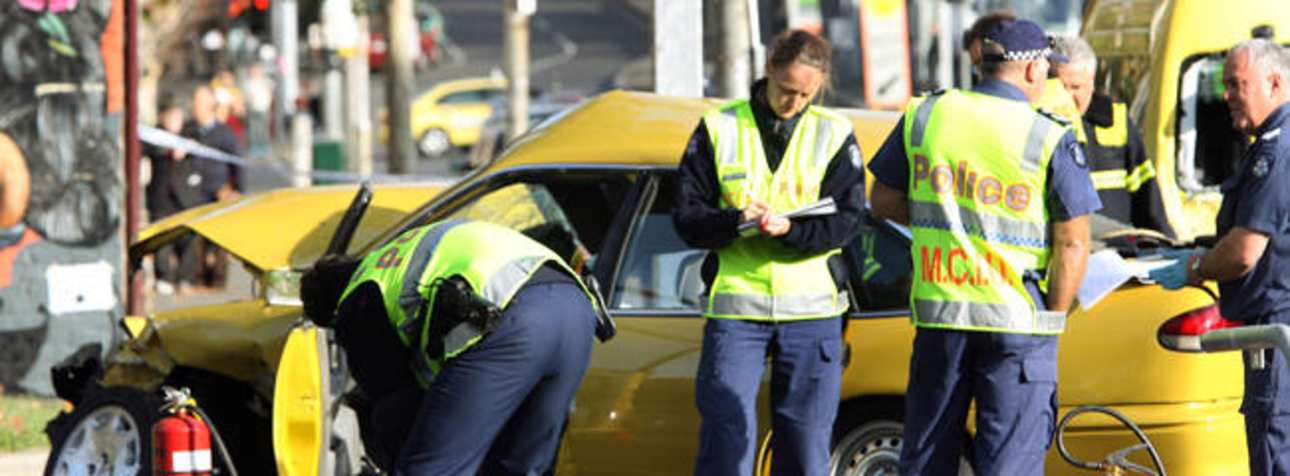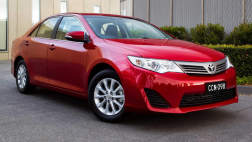Parents and concerned drivers are calling for changes and improvements on all fronts to cut the carnage. Many have asked about the safety systems in cars, with the emphasis on airbags, anti-skid brakes and ESP stability control, but there are also questions about driver training. Have your say in our poll at left.
"The idea of handing complete control of a complex machine like a motor car to a poorly trained operator is patently absurd, and obviously highly dangerous – yet that is what is happening every day. Young people have major car accidents, alone or with groups, with sickening regularity, and there is no evidence of the trend diminishing," says Bob Watson, who is more than just another Carsguide reader. He is a former champion in race and rally driving, a Holden engineer and an experienced driver trainer who says Australia needs a comprehensive re-think on driving licenses.
"We need a top level re-think about the wellbeing of our young drivers, a program to train them properly, and a licence test that truly proves their ability to drive a car," Watson says. "The time may not be far away when heartbroken parents who have lost their child in a typical young-driver crash take the government to court for giving their child a licence to drive a car when, clearly, the child was not capable of doing so.
"When an authority such as VicRoads assumes the responsibility of checking whether a driver is capable of driving safely, through the Drive Test, and does not do so adequately, the authority has clearly failed to discharge its responsibility properly. It is called culpability."
But readers are also concerned about the attitudes of hoons and other aggressive 'Type A' drivers on the road. "It may be worth telling your readers of the consequences of bad road manners in other countries," says Frank Hennessy, referring to an incident in Dubai when an Australia gave 'the finger' to an Arab driver.
"Locked up for 28 days. Then deported. That's not all - had to give up the home, two cars, and made the wife move back to Australia." His verdict is straightforward and he wants the same sort of no-nonsense penalties in Australia. "A pity we don't have the same sort of punishment here," says Hennessy.
For Watson, a bad attitude is still the result of poor training. "Despite the many recent crashes causing loss of teenage lives, all the authorities seem to do is bemoan the fact that young people are driving stupidly, and discuss increasing penalties for irresponsible driving. They overlook the fact that many of the young drivers who are killing themselves and their friends should not be driving," he says.
To prove his point, he has done an in-depth analysis of the requirements for obtaining a license, from training through to the actual Drive Test. "The government puts the onus fairly and squarely on learner drivers or their families to obtain adequate driver training the best way they can before applying for their P plates. Nothing is available from the government in the way of formal training.
"Courses are offered by organizations such as Murcotts Driving Excellence or AAMI, but many families cannot afford them. Professional lessons from a driving school are another option, but they are also expensive, and in most cases this type of instruction is confined to teaching the finer points of passing the licence test rather than teaching basic skills."
Watson also worries about the current requirements for a minimum number of driving hours. "Does the student get 120 hours of experience, or one hour of experience 120 times?," he asks. What is Watson's solution? He wants proper training, but is not convinced it will happen.
"Cost is presumably the reason that there is no official procedure for formally training pre- P plate drivers. Revenue wise, it is far more attractive to gather traffic fines from motorists than to spend funds on the expensive infrastructure for young driver training.
Politically such training may also be a negative, because anything that delays the licencing process or makes it more costly or difficult will be unpopular with young voters."








.jpg)

.jpg)
.jpg)








Comments